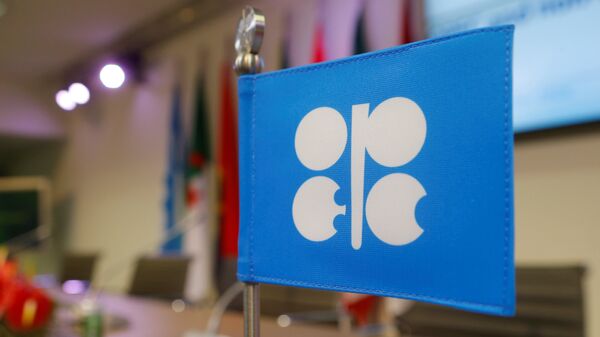The JMMC meeting will follow the Joint Technical Committee (JTC) held on Saturday, where representatives of the cartel member states met to discuss technical details of implementing decisions made in November 2016. Nigeria and Libya, who are exempt from the cuts, also attended the JTC talks, giving presentations on their plans and challenges in recovering oil production.
Five member countries of the JMMC — Kuwait, Russia, Oman, Venezuela and Algeria — plus Saudi Arabia, this year's president of the OPEC Conference, will not only monitor the compliance of the OPEC and non-OPEC countries with crude output cuts, but will also give recommendations to the oil exporters for the first time since the committees' mandate was expanded in May. The expansion was announced after the 24 countries decided to extend their production adjustments, which originally started January 1, for a further period of nine months, beginning July 1.
Monday's meeting is especially relevant after oil prices dropped to the seven-month minimum in late June, raising concerns that the OPEC+ deal was not working and increases in Libya and Nigeria's production were undermining their efforts to stabilize the oil market.
"The Brent oil price drop was driven by multiple factors. First, OPEC production has risen despite cut (output was higher from exempted members — Libya and Nigeria). Second, shale production has grown 0.5 million barrels per day since OPEC cut — the rig count has been rising more than 20 weeks in a row. And also, the global demand growth remains weak — one of the reasons for this is that US gasoline balance remains oversupplied," Irina Gaida, the partner and managing director at Boston Consulting Group (BCG) Moscow, told Sputnik.
Libya and Nigeria continue to recover their oil production at a steady pace, with both countries having upped their production by 127,000 and 96.700 barrels per day in June respectively, which amounted to 57 percent of OPEC’s total increase in crude oil output for that month. Despite that fact, neither country is expected to be present at the JMMC meeting to address this issue.
Another topic, which may be raised by the monitoring committee, is Ecuador's confession of being unable to fully meet production cuts promised to OPEC, which is 26,000 barrels of oil a day. Quito claims it needs to pump more oil to address its fiscal deficit. The country was the first oil exporter to publicly admit it, possibly interfering with the deal's unity and excellent levels of compliance.
"Consensus has pushed the oil market re-balance into 2018, and oil prices are to remain weak without a counteraction by OPEC," Gaida, who is also the head of Energy practice of BCG in the Commonwealth of Independent States, added.
OPEC and 10 non-cartel oil producers reached a deal in the Austrian capital of Vienna in 2016, agreeing to cut oil output by a total of 1.8 million barrels per day from October's level. Non-OPEC states, including Russia, promised to jointly reduce oil output by 558,000 barrels per day, with Russia pledging to cut production by 300,000 barrels daily.



